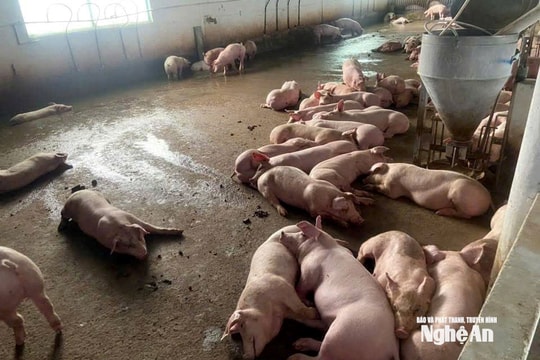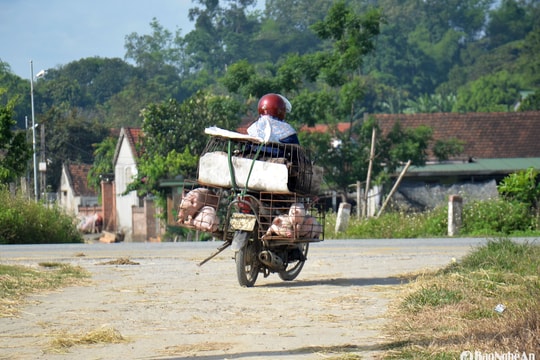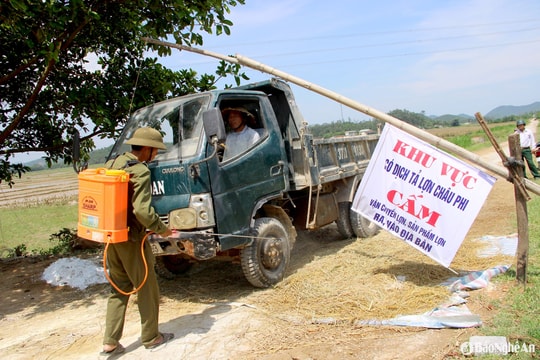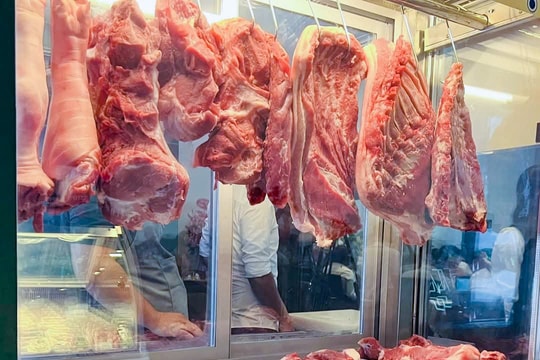There is a situation of hiding the epidemic in the context of African swine fever showing an increasing trend.
The situation of concealing African swine fever is happening in many forms such as selling off, illegal slaughter, internal consumption, and indiscriminate dumping of pig carcasses.
Mr. Phan Quang Minh, Deputy Director of the Department of Animal Husbandry and Veterinary Medicine, said that the concealment of African swine fever is taking place in many forms such as people selling off pigs, illegally slaughtering pigs, internal consumption, dumping pig carcasses indiscriminately, and reporting falsely. Along with that, there is negligence on the part of veterinary staff.
This information was given by Mr. Minh at the meeting to direct the prevention of African swine fever organized by the Ministry of Agriculture and Environment on the afternoon of July 15.
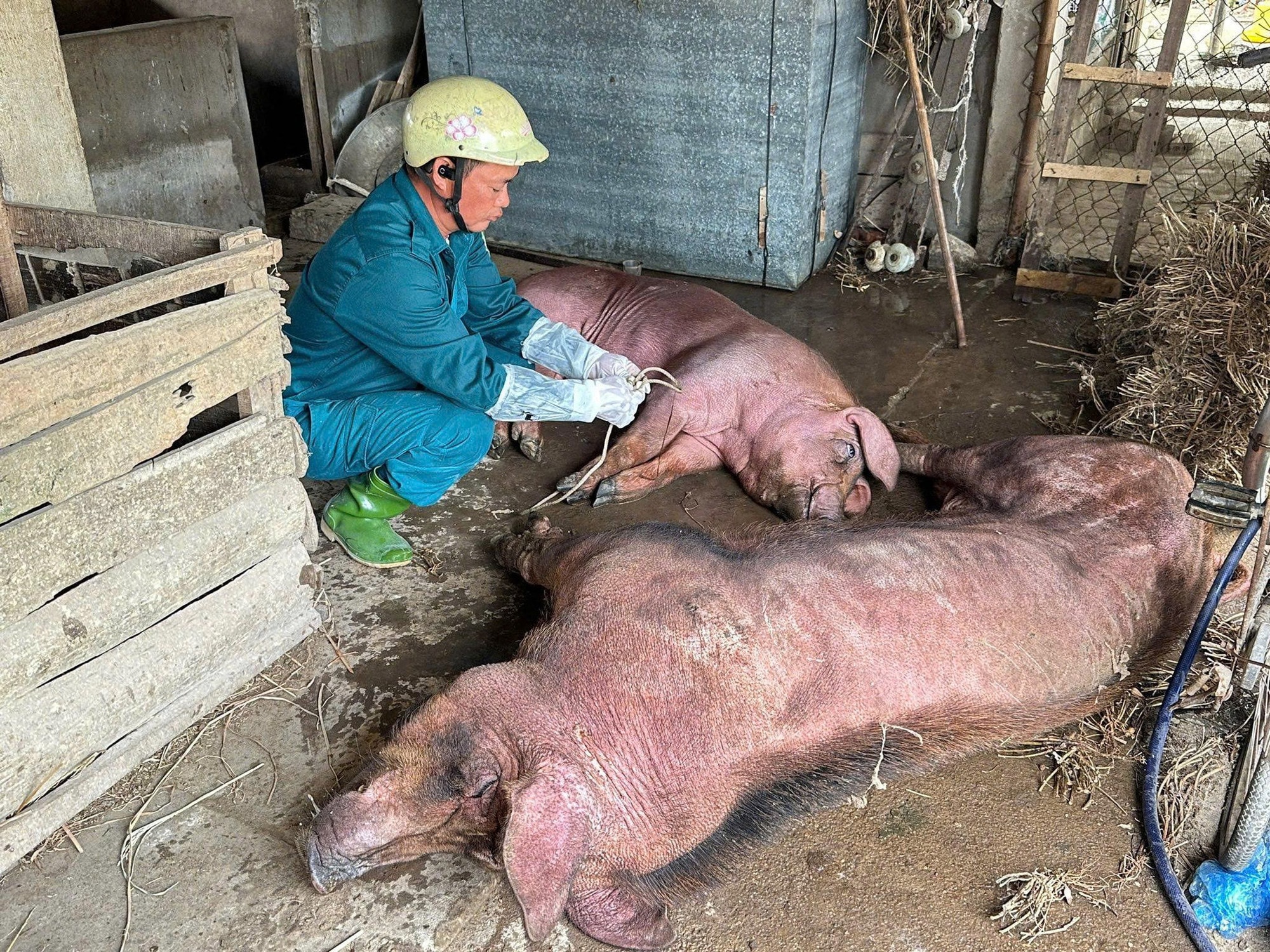
Diseases tend to increase
According to Mr. Minh, since the beginning of 2025, the country has had 514 outbreaks in 27 provinces and cities with a total of more than 30,000 sick, dead and culled pigs. Compared to the same period last year, the number of outbreaks decreased by more than 41%, the number of dead and culled pigs decreased by more than 60%.
However, recently, African swine fever has been on the rise. Currently, the country has 248 outbreaks in 20 provinces and cities that have not passed 21 days with a total of more than 20,000 infected, dead and culled pigs.
"African swine fever is developing complicatedly in some northern mountainous provinces such as Lang Son, Cao Bang, Dien Bien, Phu Tho, Son La..." - Mr. Minh said.
The main cause is from hiding the epidemic.
Mr. Minh said the main cause was the recurrence of old outbreaks, arising from small-scale livestock farming with an average of 50-60 pigs per outbreak, and livestock farming that did not ensure biosecurity and had not been vaccinated against African swine fever.
Along with that is the phenomenon of farmers hiding the epidemic, when livestock have signs of suspected disease, they often do not notify veterinary experts or local authorities for treatment and handling support, but sell the pigs and throw the carcasses into the environment, causing the disease to spread widely.
Typically, the press has reported the indiscriminate dumping of dead pigs in Suoi Hai commune (Hanoi), an area bordering Binh Duong, Binh Phuoc, Gia Lai, Nghe An, and Thanh Hoa provinces.
Common forms of translation concealment
"Through unofficial information channels, feedback from people, the media and working groups of the Department of Animal Husbandry and Veterinary Medicine, it is shown that the situation of hiding epidemics and not reporting epidemics on the system is widespread, causing the epidemic to spread and posing a serious challenge to disease prevention and control work," Mr. Minh informed.
The concealment of African swine fever epidemics manifests itself in many forms such as illegal sales, illegal slaughter, internal consumption, indiscriminate disposal of pig carcasses, false reporting, and lack of proactive inspection by authorities, mainly stemming from fear of economic losses and lack of confidence in support policies.
Ineffective support policies
Explaining why people are reluctant to declare, sell quickly, and hide the epidemic despite the support policy, Mr. Minh said that in addition to the low support price and procedures, the time to pay support to farmers is also slow. In some cases, it takes up to a quarter, a year, or even more. During this process, farmers do not have capital to produce, so they have the mentality of selling quickly to recover capital.
At the same time, there is also a phenomenon of veterinary staff at the facility being negligent and not performing well in quarantine, slaughter control, and veterinary hygiene.
Deputy Minister of Agriculture and Environment Phung Duc Tien emphasized that when African swine fever broke out, some small-scale livestock farmers took advantage of the fact that the African swine fever virus was not transmitted to humans to sell well to recover capital. This is the point that the ministry will direct veterinary agencies to coordinate with local authorities to organize monitoring to detect and handle promptly.
"We have a decree on administrative penalties for violations, even criminal penalties if the disease spreads. If we do it strictly, the trading of sick pigs will not happen again," Mr. Tien affirmed.

